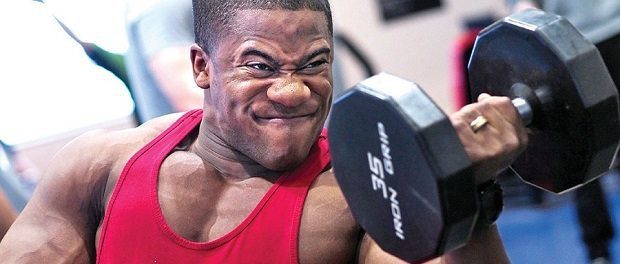High intensity training could be bad for you if you’re not a seasoned athlete.
A news item ripe for the ‘teach your grandmother to suck eggs’/screamingly obvious pile. Then again, perhaps if you’re a millennial yet to experience your first time inching crab-wise down a flight of stairs the morning after an all-too-vigorous session of lunges (arf!), it may come as a surprise. Consider yourselves warned.
Ooh me back.
High-intensity ‘sprint training’ may be gaining popularity at gyms, but if you’re new to this form of exercise, the workout could do more harm than good.
A study by Canadian and European researchers found signs of stress in the muscle tissues of their non-athlete, untrained subjects after ultra-intense leg and arm cycling exercises. Perhaps more concerning, researchers reported the untrained subjects had a weakened ability to fight off free radicals, molecules that can alter DNA and harm healthy cells.
“Our study raises questions about what the right dose and intensity of exercise for the average person really is,” said Robert Boushel, the study’s senior author and director of the University of British Columbia’s School of Kinesiology. “We need to be cautious about supporting sprint training in the general population.”
The researchers analyzed tissue samples from their test subjects and found that their mitochondria, the powerhouse of cells, were only firing at half-power post-training, reducing their capacity to consume oxygen and their ability to fight off damage from free radicals. High levels of free radicals in the body have been linked to a number of medical conditions, including cancer, premature aging and organ damage.
The potential long-term adverse effects of high-intensity sprint training are unknown, but Boushel and other researchers are continuing to study different levels of exercise, measuring the dosing of training against different biomarkers for health.
“If you’re new to going to the gym, participating in high-intensity ‘sprint’ classes may increase your performance but might not be healthy for you,” said Boushel.
Seasoned athletes and those who are well trained have built up antioxidant enzymes in their bodies to protect against free radicals, said Boushel. He recommended beginners start slowly and gradually increase intensity over time, under the supervision of a trained professional or kinesiologist.
Source: Eurekalert/University of British Columbia

Some of the news that we find inspiring, diverting, wrong or so very right.




















![L'Esprit comique [Der komische Geist], René Magritte, 1928. Courtesy Sammlung Ulla und Heiner Pietzsch, Berlin © 2025, ProLitteris, Zurich Photo Credit: Jochen Littkemann, Berlin](https://b276103.smushcdn.com/276103/wp-content/uploads/2025/07/ew11_0098489_2025-05-12_web-140x174.jpg?lossy=1&strip=0&webp=1)


No shit